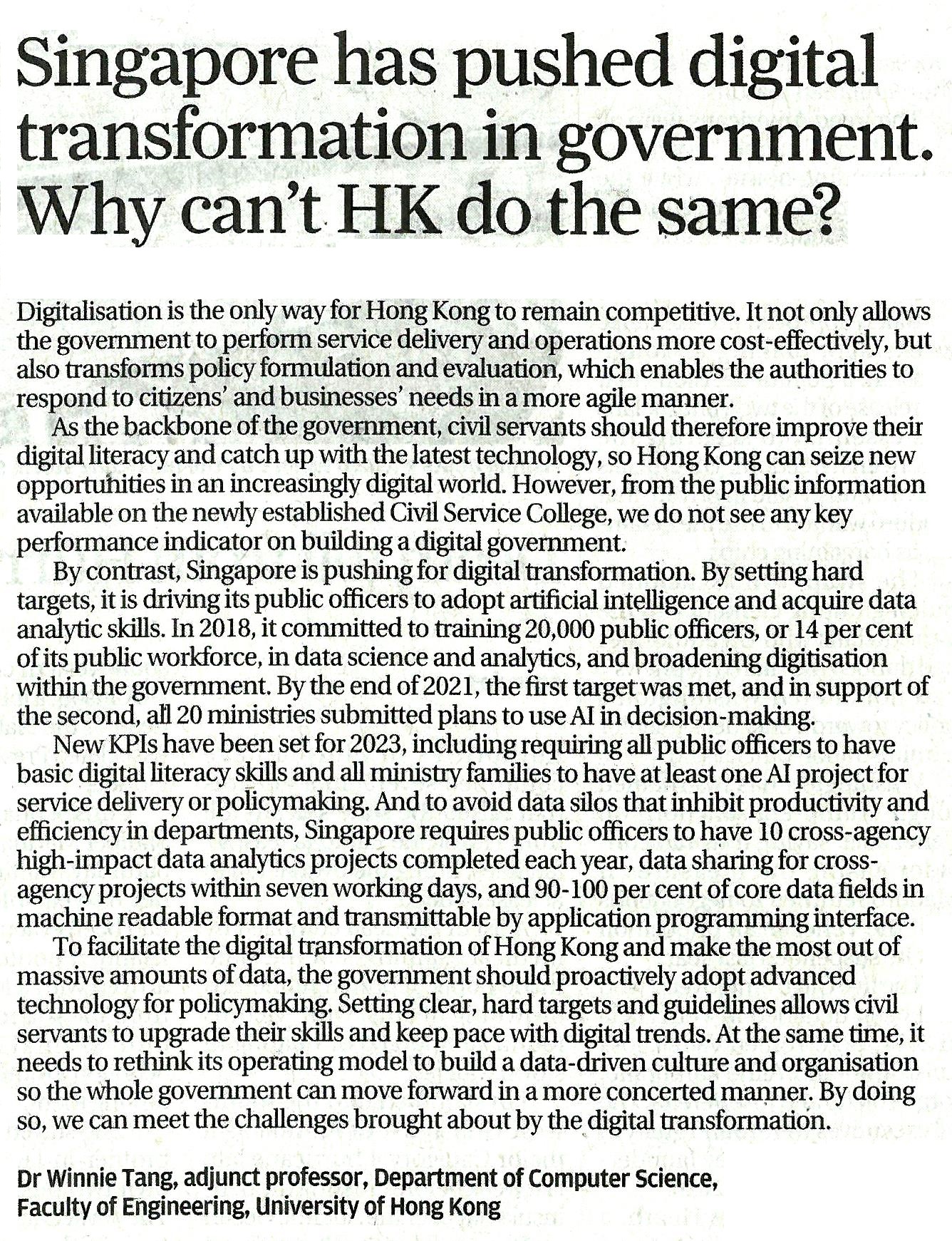
Singapore has pushed digital transformation in government. Why can't HK do the same?
Digitalisation is the only way for Hong Kong to remain competitive. It not only allows the government to perform service delivery and operations more cost-effectively, but also transforms policy formulation and evaluation, which enables the authorities to respond to citizens' and businesses' needs in a more agile manner.
As the backbone of the government, civil servants should therefore improve their digital literacy and catch up with the latest technology, so Hong Kong can seize new opportunities in an increasingly digital world. However, from the public information available on the newly established Civil Service College, we do not see any key performance indicator on building a digital government.
By contrast, Singapore is pushing for digital transformation. By setting hard targets, it is driving its public officers to adopt artificial intelligence and acquire data analytic skills. In 2018, it committed to training 20,000 public officers, or 14 per cent of its public workforce, in data science and analytics, and broadening digitisation within the government. By the end of 2021, the first target was met, and in support of the second, all 20 ministries submitted plans to use AI in decision-making.
New KPIs have been set for 2023, including requiring all public officers to have basic digital literacy skills and all ministry families to have at least one AI project for service delivery or policymaking. And to avoid data silos that inhibit productivity and efficiency in departments, Singapore requires public officers to have 10 cross-agency high-impact data analytics projects completed each year, data sharing for cross-agency projects within seven working days, and 90-100 per cent of core data fields in machine readable format and transmittable by application programming interface.
To facilitate the digital transformation of Hong Kong and make the most out of massive amounts of data, the government should proactively adopt advanced technology for policymaking. Setting clear, hard targets and guidelines allows civil servants to upgrade their skills and keep pace with digital trends. At the same time, it needs to rethink its operating model to build a data-driven culture and organisation so the whole government can move forward in a more concerted manner. By doing so, we can meet the challenges brought about by the digital transformation.
Dr. Winnie Tang
Adjunct Professor, Department of Computer Science, Faculty of Engineering; Department of Geography, Faculty of Social Sciences; and Faculty of Architecture, The University of Hong Kong